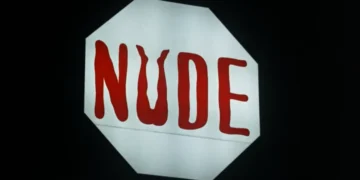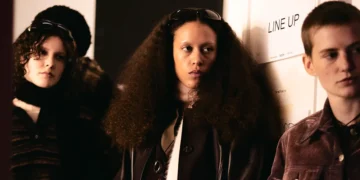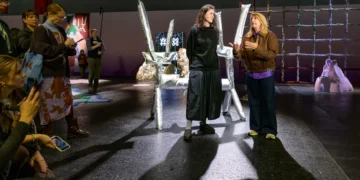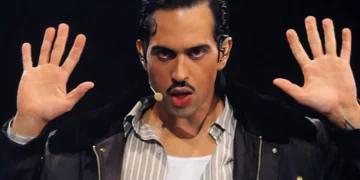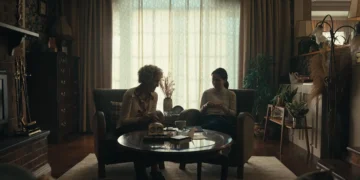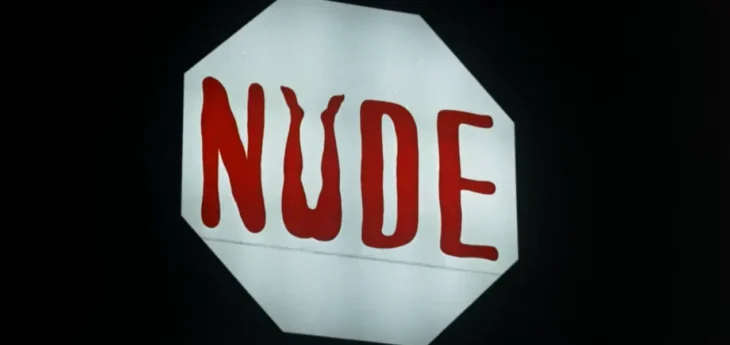
I watched Hollywood 90028 this week, the kind of film that feels like it shouldn’t exist anymore. A 1970s exploitation piece, half-psychological drama, half pornographic loop. Raw, chaotic, cheap. The lighting is wrong, the sound collapses, the rooms look lived in. But what struck me most wasn’t the violence or the voyeurism. It was the bodies.
DORIC ORDER
The women in this film don’t look like women on screens today. They have skin that folds, thighs that ripple, breasts that move in ways that would be edited out now. There’s cellulite, unplucked hair, a kind of softness that’s almost confrontational. Their beauty is unintentional. It’s not “realistic” by today’s standards, it’s simply real. The camera doesn’t flatter them. It records.
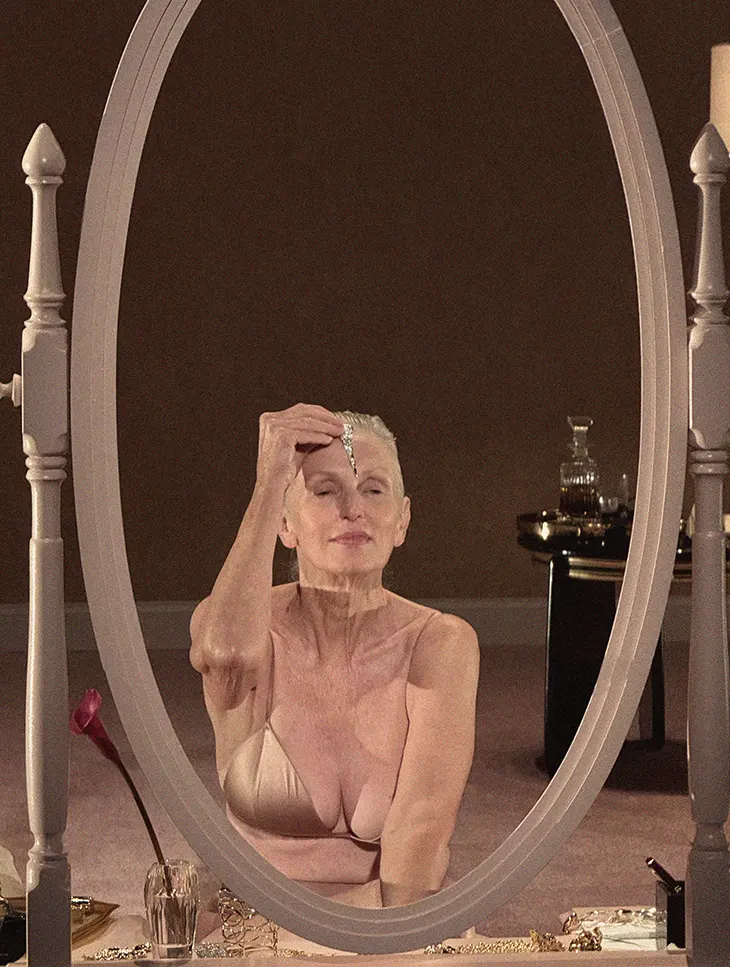
Maybe it’s because everything we see now looks too clean. Skin smoothed, pores erased, edges filtered. Even porn has become minimalist, expensive, tasteful. Sex itself feels branded, performed for an invisible algorithm. Watching Hollywood 90028 felt almost obscene, but in the way life is obscene: messy, unpredictable, full of strange bodies and even stranger rooms. The kitchen looks like a kitchen. You can see the frying pan that’s been used too many times, the curtains yellowed from smoke. It’s the kind of domestic ugliness that has vanished from culture.
The movie isn’t good, not in a conventional sense. But it made me feel something that polished beauty rarely does anymore – relief. Relief at the sight of imperfection. At the idea that beauty used to exist before curation. That women could exist on screen without contouring, injectables, filters, or concern for what the camera might find unflattering.
After decades of being told to disappear, to shrink, smooth, filter, wax, control, women are tired.
The same week, I saw that SKIMS released “bush thongs.” Marketing them, of course, as empowerment, the return of the natural woman, the rewilding of the female body, the promise of choice. It’s strange how capitalism always finds its way into liberation. Body hair used to be a quiet fact of life; now it’s a limited-edition aesthetic. The bush is back, but only if it’s symmetrical, photogenic, and looks good under SPF lighting.
Still, I understand the appeal. After decades of being told to disappear, to shrink, smooth, filter, wax, control, women are tired. We’re tired of hairless perfection and impossible textures. We want pores. We want friction. We want a frying pan that looks used.
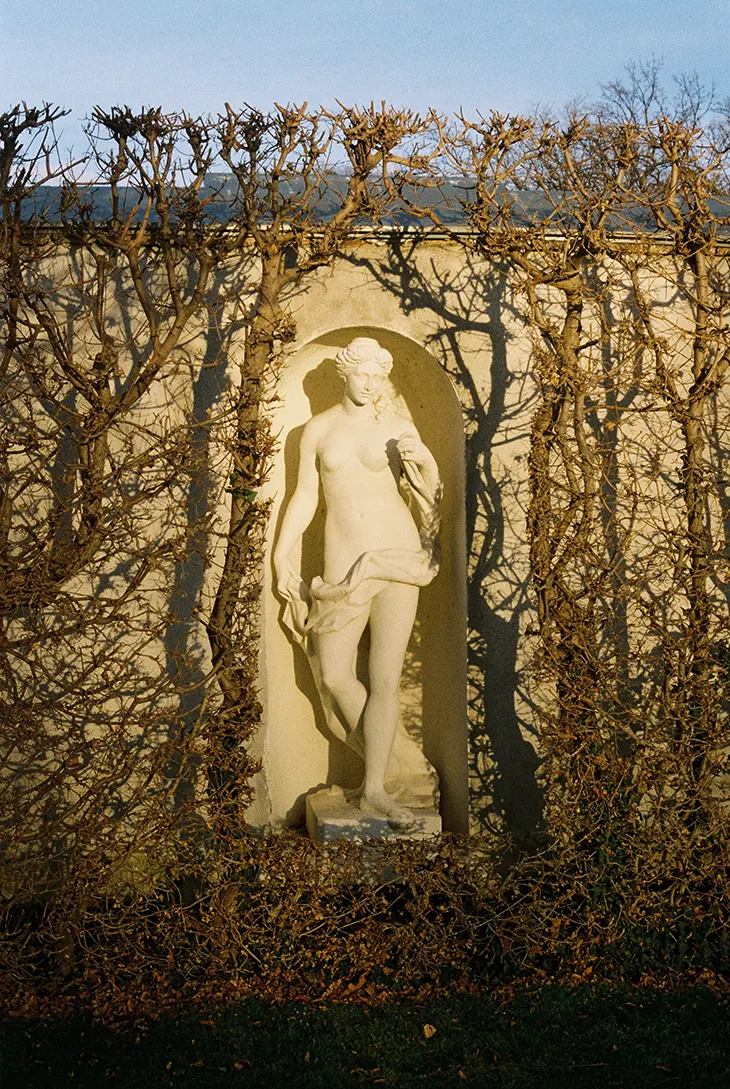
I think about this a lot in my work. Writing about fashion or beauty, describing a campaign shot on film that pretends to be raw, it can feel absurd. I know it’s performance. I know every wrinkle in those photos was approved by marketing. But when I see something unintentional, a crease in a model’s stomach, the glint of sweat under studio lights, it feels like rebellion.
The female body has always resisted minimalism. It leaks, bleeds, grows hair. It resists control.
Maybe we’re all starving for texture. Everything around us is optimized for consumption. Smooth, beige, endless. Even femininity has been rebranded as neutral: clean girl, soft girl, wellness girl. But the female body has always resisted minimalism. It leaks, bleeds, grows hair. It resists control. The women in Hollywood 90028 look free because they’re allowed to be imperfect. Their bodies aren’t optimized for anyone’s gaze, not even their own.
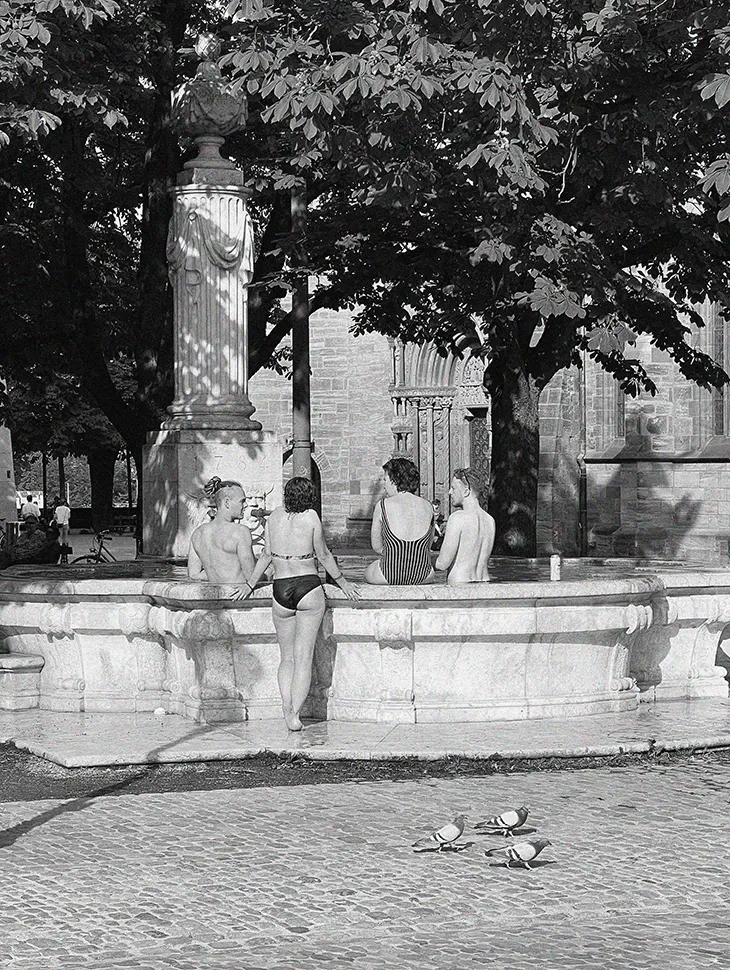
The film’s cheapness adds to its honesty. You can feel the limits of production, the too-bright lamps, the static framing, the improvisation. It reminded me that imperfection is what makes art feel alive. We’ve mistaken polish for value. But rawness is what sticks. Maybe we’re at a point where everything needs to look slightly wrong again.
There’s also something feminist in this rawness, though not in the brand-approved sense. Liberation isn’t looking perfect without makeup; it’s not even about rejecting beauty. It’s about permission, to be unpresentable, to exist outside optimization. The women in that film aren’t empowered; they’re human. And that feels radical now.
When I left the movie playing in the background, I kept thinking about my own bathroom mirror. How much time I spend making things presentable, my face, my home, my words. How editing has become second nature. Watching Hollywood 90028 made me want to stop smoothing the edges. Maybe freedom begins with letting things look a little bad.
Perfection has become exhausting. The next revolution might be flesh. Unfiltered, unshaved, uneven.
The current trend of “returning to real,” unshaved armpits in campaigns, visible stretch marks, undone hair, still feels like performance. But it’s a step. At least it acknowledges that beauty has limits. That perfection isn’t liberation. I’m not nostalgic for the 1970s, but I miss the honesty of imperfection. The kind that doesn’t need a campaign to justify it.
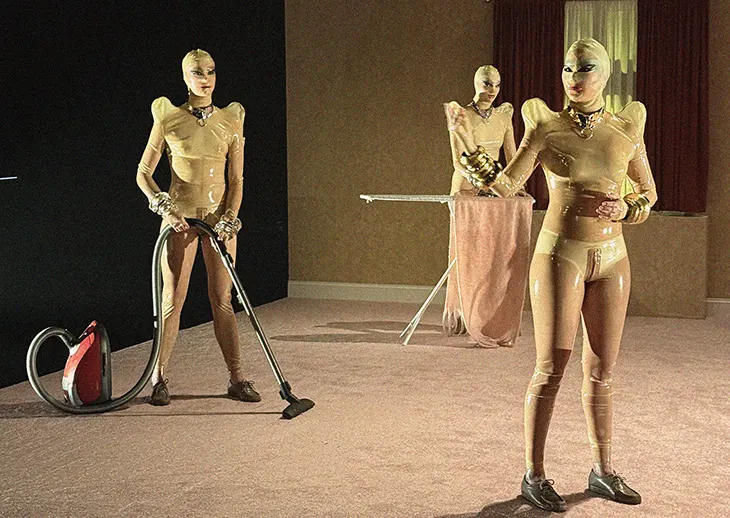
We’ve curated even our rawness. The new “authenticity” still needs good lighting. The new body positivity still needs angles. But somewhere between that frying pan and a SKIMS thong, there’s a glimpse of something else, an unbranded kind of beauty. The kind that exists without explanation.
I think we’ll return to that, eventually. Not because it’s marketable, but because perfection has become exhausting. The world is collapsing, the seas are boiling, and yet we’re still editing our pores. Maybe the next revolution won’t be aesthetic. Maybe it’ll be flesh, unshaved, uneven, unfiltered flesh, refusing to perform.

